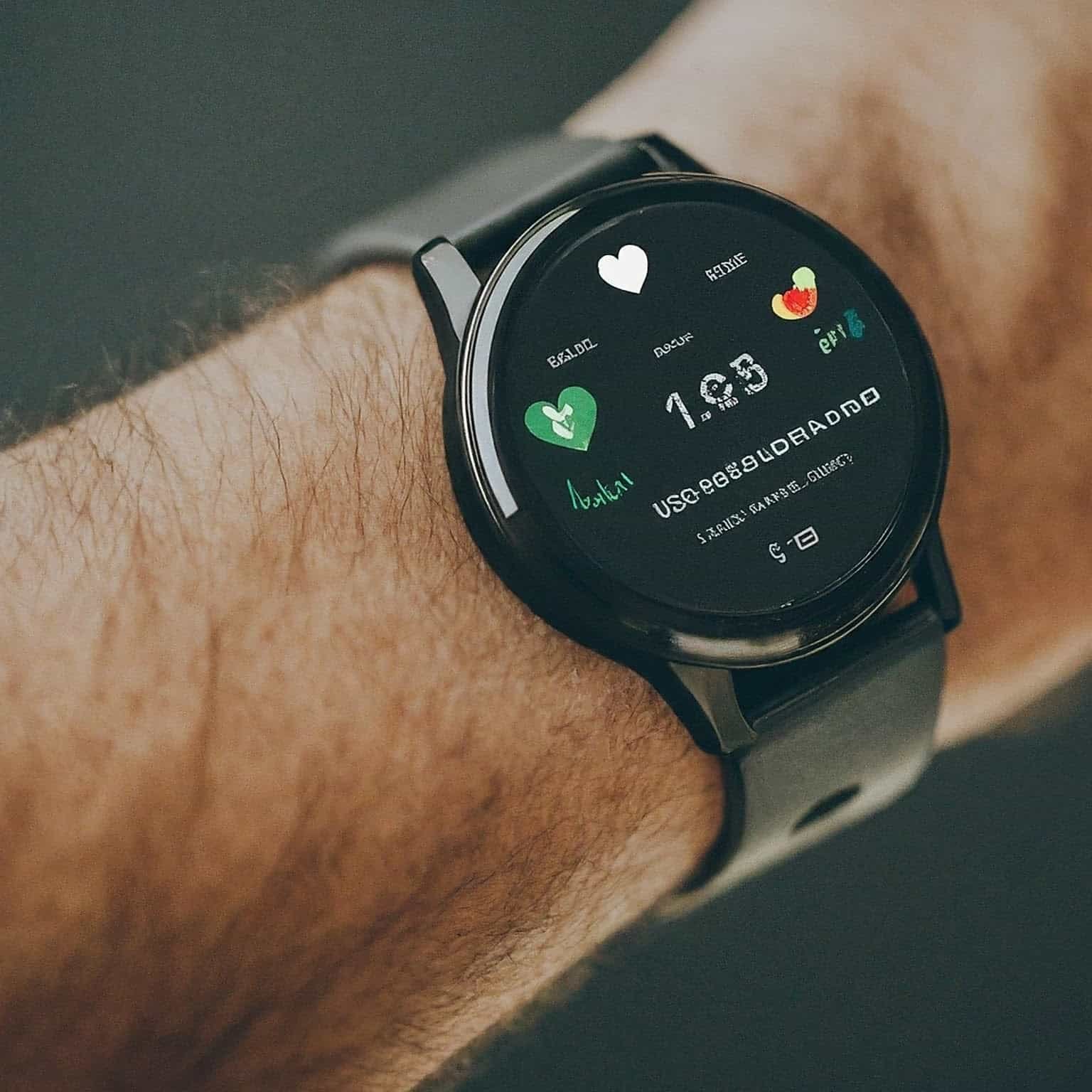Augmented reality (AR) is a groundbreaking technology that blends digital content with the real world, enhancing our perception and interaction with our surroundings. It overlays digital images, sounds, or information onto our physical environment, creating immersive and interactive experiences. AR has the potential to revolutionize various industries, from gaming and entertainment to education and healthcare, by offering innovative ways to engage with content and information in real time.
Imagine looking through a special pair of glasses or using your smartphone to see the world around you in a whole new way. That’s what AR does. It adds digital images, sounds, or information to the real world, blending them so you can experience something amazing. It’s like bringing the virtual world into the real world!
Now, let’s talk about mental health treatments. Mental health is super important because it’s all about how we feel and think. Sometimes, people might need a little extra help to feel better if they’re struggling with things like anxiety, depression, or stress. There are lots of ways to treat mental health issues, like therapy where you talk to someone who helps you feel better, or medication that can help balance your brain chemicals.
Key Takeaways
- AR’s Potential in Mental Health: Augmented Reality (AR) offers exciting opportunities to revolutionize mental health treatments by enhancing accessibility, engagement, and personalization. It creates immersive experiences that can improve therapy sessions and provide new avenues for wellness.
- Potential Applications: AR can be utilized in various mental health interventions, including psychotherapy sessions, exposure therapy, mindfulness practices, cognitive behavioral therapy (CBT) tools, and social skills training for individuals with Autism Spectrum Disorder (ASD).
- Benefits: AR enhances accessibility by enabling remote therapy sessions, improves engagement through immersive experiences, provides real-time feedback for personalized interventions, and helps reduce the stigma associated with traditional mental health treatments.
- Challenges: Implementing AR in mental health treatments comes with challenges such as hardware limitations, software development complexities, privacy concerns, integration with existing treatment frameworks, and ensuring accessibility for diverse populations.
- Ethical Considerations: Ethical considerations include obtaining informed consent, ensuring intervention accuracy and effectiveness, maintaining patient confidentiality and privacy, addressing addiction risks, and critically evaluating the ethical implications of using AR for diagnostic purposes.
- Addressing Challenges: Solutions to overcome challenges include research and development of affordable AR devices, interdisciplinary collaboration, implementation of robust privacy measures, education and training for mental health professionals, and designing inclusive AR applications.
- Ethical Responsibility: Prioritizing ethical principles such as respect for autonomy, beneficence, non-maleficence, and justice is crucial in harnessing the potential of AR to improve mental health outcomes responsibly and ethically.
Introduction to the Emerging Role of AR in Mental Health Treatments
Here’s where it gets really interesting: the emerging role of AR in mental health treatments. Scientists and doctors are starting to use AR technology to help people feel better mentally. How cool is that? Instead of just relying on traditional methods like therapy or medication, they’re adding AR into the mix to make treatment even more effective.
Imagine putting on a pair of AR glasses and being transported to a peaceful beach where you can relax and unwind. Or using an AR app on your phone to learn helpful coping skills for dealing with stress or anxiety. AR can create virtual environments that can help calm your mind and improve your mood, making it a powerful tool for mental health treatment.
Plus, AR can make therapy sessions more engaging and interactive. Instead of just sitting and talking, you might use AR to visualize your feelings or practice new coping strategies in a virtual setting. It’s like turning therapy into a fun and immersive experience!
Potential Applications of AR for Therapy and Wellness
When it comes to therapy and wellness, technology is opening up new doors to help people feel better mentally and emotionally. One exciting area of innovation is Augmented Reality (AR). Let’s explore some potential applications of AR that could revolutionize how we approach therapy and wellness.
AR-based Psychotherapy Sessions
Picture this: instead of sitting in a traditional therapist’s office, you slip on a pair of AR glasses and find yourself in a serene virtual environment. In AR-based psychotherapy sessions, therapists can create customized virtual spaces to help clients feel more comfortable and open up about their thoughts and feelings. It’s like bringing therapy to life in a whole new way!
AR-enhanced Exposure Therapy
Exposure therapy is a technique used to help people confront and overcome their fears in a safe and controlled environment. With AR-enhanced exposure therapy, individuals can gradually expose themselves to anxiety-inducing situations in a virtual setting. For example, someone with a fear of heights could use AR to experience being on top of a tall building without actually being there, helping them build confidence and reduce their fear over time.
AR-enabled Mindfulness and Relaxation Techniques
Mindfulness and relaxation techniques are great for reducing stress and promoting overall well-being. AR can take these practices to the next level by providing immersive experiences that engage multiple senses. Imagine using AR to visualize peaceful scenes, listen to calming sounds, and even feel sensations like gentle breezes or warm sunlight. It’s like having a personal relaxation retreat right at your fingertips!
AR-based Cognitive Behavioral Therapy (CBT) Tools
Cognitive Behavioral Therapy (CBT) is a widely used approach for treating various mental health conditions by helping individuals change negative thought patterns and behaviors. AR-based CBT tools can enhance traditional therapy by offering interactive exercises and simulations that help clients practice coping strategies and challenge distorted thinking in real time. It’s like having a virtual coach to guide you through the process of changing your mindset for the better.
AR for Improving Social Skills and Communication in Individuals with Autism Spectrum Disorder (ASD)
For individuals with Autism Spectrum Disorder (ASD), social skills and communication can be challenging areas. AR holds promise for helping them develop and practice these skills in a supportive virtual environment. By creating simulated social interactions and providing instant feedback, AR can help individuals with ASD gain confidence and improve their ability to navigate social situations in the real world.
Increased Accessibility to Therapy
One of the biggest challenges in mental health care is ensuring that everyone who needs help can access it. AR has the potential to bridge this gap by making therapy more accessible to people from all walks of life. With AR, individuals can participate in therapy sessions from the comfort of their own homes, eliminating barriers such as transportation issues or scheduling conflicts. This increased accessibility means that more people can receive the support they need, regardless of their location or circumstances.
Enhanced Engagement and Immersion in Therapy Sessions
Traditional therapy sessions can sometimes feel disconnected or detached from the real world. AR changes that by creating immersive and engaging experiences that captivate the senses. Instead of just talking to a therapist, individuals can interact with virtual environments, visualizations, and simulations that bring therapy to life in a whole new way. This enhanced engagement can make therapy more enjoyable and effective, encouraging individuals to actively participate in their treatment process.
Real-time Feedback and Personalized Experiences
One of the key benefits of AR is its ability to provide real-time feedback and personalized experiences. Therapists can use AR technology to track progress, monitor emotions, and adjust treatment plans on the fly based on individual needs and preferences. This level of customization ensures that each therapy session is tailored to the unique challenges and goals of the individual, leading to more meaningful and impactful outcomes.
Reducing the Stigma Associated with Traditional Mental Health Treatments
Unfortunately, there is still a lot of stigma surrounding mental health treatments, which can prevent people from seeking the help they need. AR has the potential to change that by offering a more modern and socially acceptable approach to therapy. By incorporating cutting-edge technology into mental health care, AR can help reduce the stigma associated with traditional treatments and make therapy feel more approachable and relatable to a wider audience.
Potential for Remote Therapy Sessions
In today’s digital age, remote therapy sessions are becoming increasingly popular as they offer convenience and flexibility for both therapists and clients. AR technology takes remote therapy to the next level by providing a more immersive and interactive experience. Through AR-enabled platforms, individuals can connect with therapists in virtual environments, allowing for face-to-face interactions and real-time interventions from anywhere in the world. This opens up a world of possibilities for individuals who may not have access to traditional therapy options due to geographical or logistical constraints.
| Challenges | Solutions |
| Hardware Limitations and Costs | Research and develop affordable AR devices tailored for mental health applications. Optimize software to run efficiently on low-power hardware. Explore leasing or subsidy programs for AR devices in clinical settings. |
| Software Development Challenges | Foster interdisciplinary collaboration between mental health professionals, software developers, and AR experts. Provide specialized training programs for developers on mental health principles and evidence-based practices. |
| Privacy and Data Security Concerns | Implement robust encryption and access control mechanisms to safeguard sensitive user data. Adhere to established privacy regulations such as HIPAA and GDPR. Educate users on data privacy practices and obtain informed consent. |
| Integration with Existing Treatment Frameworks | Develop educational resources and training programs for mental health professionals on AR applications. Ensure AR applications align with evidence-based treatment approaches and clinical guidelines. Provide ongoing support and guidance during implementation. |
| Ensuring Accessibility for Diverse Populations | Design AR applications with inclusive features such as multi-modal interaction and customizable interfaces. Conduct usability testing with diverse user groups to identify and address accessibility barriers. Provide training and support for users with varying levels of technological proficiency. |
Informed Consent and User Autonomy
One of the foremost ethical considerations in AR-based mental health treatments is ensuring that individuals provide informed consent before participating in therapy sessions or interventions. Users should have a clear understanding of what the AR technology entails, including its potential benefits, risks, and limitations. It’s essential to respect user autonomy by allowing individuals to make informed decisions about their participation in AR-based treatments and ensuring that they have the option to withdraw consent at any time.
Ensuring the Accuracy and Effectiveness of AR Interventions
When using AR technology for mental health treatments, it’s imperative to ensure the accuracy and effectiveness of interventions. Therapists and developers must base their interventions on evidence-based practices and clinical guidelines to maximize positive outcomes for users. Additionally, ongoing monitoring and evaluation of AR interventions are necessary to assess their effectiveness and make any necessary adjustments to improve patient outcomes.
Maintaining Patient Confidentiality and Privacy
Protecting patient confidentiality and privacy is paramount in AR-based mental health treatments. AR applications may collect sensitive information about users, such as their emotions, behaviors, and personal experiences. It’s essential to implement robust security measures to safeguard this data from unauthorized access or misuse. Additionally, therapists and developers should adhere to strict confidentiality protocols and comply with relevant privacy regulations, such as HIPAA, to ensure the privacy rights of patients are upheld.
Addressing Potential Addiction or Over-reliance on AR Technology
As with any technology, there is a risk of individuals becoming addicted or overly reliant on AR for mental health support. Therapists and developers must be mindful of the potential for addiction and take steps to mitigate this risk. This may include setting usage limits, promoting healthy coping strategies, and encouraging users to balance their AR-based interventions with other forms of support, such as in-person therapy or social connections.
Ethical Implications of Using AR for Diagnostic Purposes
Using AR for diagnostic purposes raises ethical concerns related to accuracy, reliability, and potential biases in the data collected. Therapists must critically evaluate the ethical implications of using AR technology for diagnostic assessments and ensure that any diagnoses made are based on comprehensive evaluations that consider multiple factors. Additionally, therapists should communicate transparently with patients about the limitations of AR-based diagnostics and involve them in the decision-making process.
FAQS
- How does Augmented Reality (AR) benefit mental health treatment?
- Augmented Reality (AR) in mental health treatment enhances accessibility by enabling remote therapy, eliminates geographical barriers, and offers flexible scheduling. It improves engagement with immersive experiences, provides real-time feedback, and personalizes interventions, making treatments more effective, engaging, and tailored to individual needs.
- What are the ethical considerations of using Augmented Reality (AR) in mental health treatments?
- Implementing AR in mental health requires addressing ethical concerns: informed consent, privacy, addiction risks, and diagnostic implications. Prioritizing ethical principles ensures patient well-being and rights are upheld, allowing AR to improve mental health outcomes responsibly and ethically.
Conclusion
In conclusion, as Augmented Reality (AR) technology continues to intersect with mental health treatments, it brings both tremendous promise and significant ethical considerations. While AR has the potential to enhance the accessibility, engagement, and effectiveness of mental health interventions, it is crucial to navigate these advancements responsibly and ethically.
By prioritizing informed consent, ensuring intervention accuracy, maintaining patient confidentiality, addressing addiction risks, and critically evaluating diagnostic implications, we can harness the potential of AR to improve mental health outcomes while upholding ethical principles and protecting the well-being of individuals seeking support.
As we move forward, collaboration between mental health professionals, technology developers, policymakers, and ethicists will be essential to strike a balance between innovation and ethical integrity. By working together, we can maximize the benefits of AR-based mental health treatments while minimizing potential risks, ultimately advancing the field responsibly and ethically.



